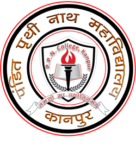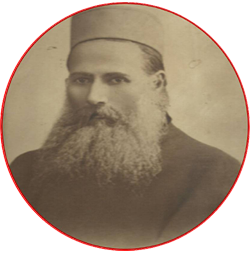1.1. Curricular Planning and Implementation
1.1.1. The Institution ensures effective curriculum planning and delivery through a well-planned and documented process including Academic calendar and conduct of continuous internal Assessment.
The College holds affiliation with CSJM University, Kanpur. As an affiliated institution, we adhere to the curriculum established by the university. Despite these constraints, we are dedicated to execute well-planned processes and strategies, ensuring effective curriculum delivery through unwavering efforts. Faculty members bear the responsibility of ensuring curriculum compliance, and we successfully achieve this goal. The college strictly follows the university's academic calendar, encompassing the commencement and conclusion dates of the academic session.
When creating the academic calendar of the college, we place great emphasis on conducting extracurricular and social activities including sports, cultural events, and literary programs. These include celebrating various National and International days, commemorating the anniversaries of National Icons, and organizing tree planting initiatives to maintain a green campus and raise awareness about environmental issues. The NSS unit of the college also organizes activities such as blood donation camps and community outreach programs.
Our Prospectus lays out the vision, mission, and objectives of the college, emphasizing the provision of value-based, quality education to foster a passion for creative learning. It also provides information about the courses we offer.
The Time Table Committee for undergraduate classes and respective departments for post-graduate classes prepare the master timetable, which we strictly adhere to for both theory and practical classes. At the beginning of each session, the Heads of the Departments, in consultation with faculty members, establish lesson plans.
Assigning papers is based on the expertise of our faculty members, and we provide new students with syllabi, recommended books, and reading lists. We conduct remedial and tutorial classes to assist weaker students in catching up with their peers. Towards the end of the session, we hold revision and recap classes. Our college offers an environment conducive to the teaching and learning process. We have upgraded our library and acquired course materials, reference books, and journals. Teachers have access to NLIST, Unique user ID, and passwords to help them stay up to date. Our science labs are well-equipped to meet curriculum requirements.
Teachers are encouraged to employ interactive and innovative teaching methods alongside traditional lectures. These methods include guest lectures, group discussions, and PowerPoint presentations to elucidate key points and concepts. During the pandemic, our college teachers continued teaching and assessment through online tools and the college administration developed a very effective procedure to ensure the same. Faculty members are actively engaged in research work and continually enhance their knowledge through seminars, conferences, and faculty development programs. Many teachers are members of significant academic bodies within the university, contributing to curriculum development, assessment, and evaluation.
To assess learning outcomes, we conduct periodic tests and half-yearly examinations. To enrich the learning process through experiential learning, some departments arrange industrial visits and field trips.
We have implemented a feedback system for students that addresses their concerns and needs, providing guidelines for enhancing the teaching and learning process. Our IQAC maintains a continuous monitoring system to identify any issues in curriculum delivery as part of our broader mission to provide holistic, high-quality education.
File enclosed:
1.2. Academic Flexibility
1.2.1. Number of Certificate/Value added courses offered and online courses of MOOCs, SWAYAM, NPTEL etc. where the students of the institution have enrolled and successfully completed during the last five years)
1.2.1.1: Number of Certificate/Value added courses offered and online courses of MOOCs, SWAYAM, NPTEL etc. where the students of the institution have enrolled and successfully completed during the last five years. 30
File enclosed:
- Institutional data in the prescribed format (Data Template).
- Institutional programme brochure/notice for Certificate/Value added programs with course modules and outcomes.
- List of students and the attendance sheet for the above mentioned programs.
- Evidence of course completion.
- Extra document
1.2.2. Percentage of students enrolled in Certificate/ Value added courses and also completed online courses of MOOCs, SWAYAM, NPTEL etc. as against the total number of students during the last five years. 25.55
1.2.2.1. Number of students enrolled in Certificate/ Value added courses and also completed online courses of MOOCs, SWAYAM, NPTEL etc. as against the total number of students during the last five years.
Year | 2018-19 | 2019-20 | 2020-21 | 2021-22 | 2022-23 |
Number | 1865 | 2062 | 0 | 59 | 152 |
File enclosed:
1.3 Curriculum Enrichment
1.3.1. Institution integrates crosscutting issues relevant to Professional Ethics, Gender, Human Values, Environment and Sustainability in transacting the Curriculum.
For the sustenance of human life on this planet, human values, professional skills, ethics, gender, and environment play a vital role. The subjects taught in higher education institutions must go in accordance with these four measures which ensure the holistic progress. This approach ensures that students are also equipped with essential life skills and values that prepare them for responsible citizenship. The curriculum designed by the University has addressed these areas and our faculty members contribute in decision making, as members of BOS.
The following serious considerations are noteworthy in various subjects:
Human Values:
The course contents of Literature and Sociology inculcate human values to the minds of the students which enable them to emerge as noble human beings who can add to the society. English literature covers the concept of human values on global level taking into account the literature in English and translated into English around the world. Hindi Literature takes into its domain the literature from rural to urban area written in Hindi and its various dialects. Sociology studies the emergence growth and sustenance of a social system in a particular region and examines the value system of people.
Professional Ethics:
Professional ethics and skills spring from the social needs and grow along with human values. The subjects like Political Science, Psychology and Sociology make the students aware of the existing professional ethics and pave their ways to develop new professional ethics. Political Science covers the role of professional ethics in determining the role of parliament along with the issues of policy formation, upholding accountability, collaboration and co-operation for maintaining equality and justice in a democratic world. Psychology enriches the consciousness of the students by making them aware of social behaviour, and develops the pattern of understanding of socio-psychological responses in various spheres of life. Sociology makes the students analyze undercurrents of social changes which become decisive factors of professional ethics.
Gender Sensitization:
Understanding of gender issues is an essential requirement of modern education. In a country like India, so many genders related myths exist even in 21st century. A broad range of topics related to the issues of gender bias and discrimination are covered under Political Science and Sociology. The young inquisitive minds may have various complex questions regarding gender. Their curious queries are answered by these branches of learning.
Environment and Sustainability:
Environment not only provides home but also supplies everything required for sustenance of life. Chemistry, Economics, Political Science and Zoology contribute to Ecosophy. The curriculum of these subjects deal with the various factors and components of environment; economic resources, social factors, climate change, impact of industrialization and urbanization. It makes the students think in terms of sustainable developmental global level.
The integration of these crosscutting issues is not limited to theoretical knowledge but extends to practical experiences and community engagement. P.P.N. P.G. College encourages students to participate in service-learning projects, internships, and extracurricular activities that allow them to apply what they have learned in real-world contexts.
File enclosed:
1.3.2. Percentage of students undertaking project work/field work/ internships (Data for the latest completed academic year).
| Year | 2022-23 |
| Percentage | 20.64 |
1.3.2.1. Number of students undertaking project work/field work / internships:
| Year | 2022-23 |
| Number | 659 |
1.3.2.2. Total number of students during the latest completed academic year:
| Year | 2022-23 |
| Number | 3193 |
File enclosed:
1.4. Feedback System
1.4.1. Institution obtains feedback on the academic performance and ambience of the institution from various stakeholders, such as Students, Teachers, Employers, Alumni etc. and action taken report on the feedback is made available on institutional website.
Class A -
- Feedback collected from four stake holders. YES
- Analyzed and Communicated to the relevant bodies YES
- Action has been taken YES
- Feedback hosted on the institutional website. YES
File enclosed:
- Institutional data in the prescribed format (Data Template)
- Feedback from Students, Teachers, Parents, and Alumni.
- Feedback analysis report submitted to appropriate bodies.
- Action taken report on the feedback analysis.
- Link of institution’s website where comprehensive feedback, its analytics and action taken report are hosted.

